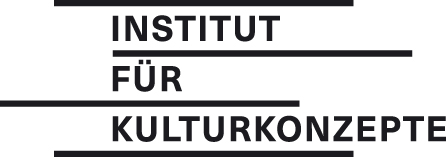Diese Website verwendet Cookies, damit wir Ihnen die bestmögliche Benutzererfahrung bieten können. Cookie-Informationen werden in Ihrem Browser gespeichert und führen Funktionen aus, wie das Wiedererkennen von Ihnen, wenn Sie auf unsere Website zurückkehren und hilft uns zu verstehen, welche Abschnitte der Website für Sie am interessantesten und nützlichsten sind. Nähere Informationen dazu können Sie in unserer Datenschutzerklärung nachlesen.


Results of an empirical research among cultural managers worldwide regarding their working conditions, missions, challenges
An article by Birgit Mandel
From a Western perspective, it seems that cultural management has been well established as a profession and as an academic discipline, too, with a high number of research and publications existing and a profound body of knowledge and strategies that seem to be similar all over the world. Moreover, due to an increasing amount of cultural cooperation beyond borders, working practises in arts and cultural management seem to become universal.
Cultural managers work in international art festivals, global companies of the creative industries, or international tourism. They are involved in cultural diplomacy and cultural development cooperation and, in times of an increasing worldwide migration, cultural managers are engaged in moderating “intercultural” change management processes in their own countries.
Is cultural management getting harmonized due to cultural globalization? Or are concepts and practices of cultural management more influenced by the specific national or regional conditions? Are there differences between the Western world and other world regions?
How do cultural managers from different world regions describe their working conditions and missions, also in terms of cultural policy, and which differences can be observed?
What are the main challenges of international cultural cooperation, which competencies are needed for working in international and intercultural contexts, and which training concepts in international cultural management proved to be successful?
These were the main research questions of an exploratory empirical survey, conducted by the author, with the support of students from the Hildesheim University program cultural management and in cooperation with the Goethe Institut and the European Cultural Foundation Amsterdam/Mit Ost Berlin. Interviews were conducted with 35 experts; 750 respondents from all together 110 countries completed an online survey. In addition, an in-depth analysis of two international arts/cultural management trainings programs: the “MOOC Managing the Arts” by Goethe Institut and the “Tandem” Program by European Cultural Foundation Amsterdam/MitOst e.V. Berlin were done.

Very different working conditions but similar values
The results of the study reveal that cultural managers worldwide neither observe nor desire universalization in the sense of homogenization either in cultural life or in cultural management approaches. According to them, managing arts and culture always demands a differentiated adjustment to local needs and conditions.
Working conditions for cultural managers differ tremendously, ranging from a well-funded public arts sector with many governmentally funded institutions like in Germany, to a cultural life organised and executed by volunteers and the civil society mostly where cultural operators often act as artists, political activists and managers at the same time.
The findings stress moreover the importance of the personality of the manager as well as the institutional and the local conditions for the practices of arts/cultural management over and above the influences of cultural globalization.
Diversity in management practices e.g. in terms of time management, flexibility grades, but also in terms of artistic judgements and prioritising goals, is rather seen as enriching national and regional cultural concepts as well as collaborations across national boundaries.
At the same time, results show that cultural operators worldwide seem to share certain work missions and values, which might be explained by the concept of “cosmopolitanism” as well as by the specific character of the artistic and cultural field.
The majority of the respondents, for example, chose for their self-understanding as cultural manager most often the role models of “cultural educator” and “agent of social change”, – roles, where cultural managers take over societal responsibility instead of only managing an arts institution efficiently.
Besides the widespread similarities in the opinions of the respondents a closer look revealed some significant regional differences: Respondents from developing and emerging countries identify themselves even more often with the roles “agent of social change“ and “artist“; they stress more often the importance of the following aims of cultural policy in their countries: “promoting social integration”, “building and stabilizing democracy”, “fostering national identity” and “fostering religious values”; and they name “building and strengthening a democratic society” more often as a central goal for arts/cultural managers in the future. They more often assess as important influence factors on the style, in which arts/cultural management is practiced, the individual educational background of the manager. They more often mention as challenges and difficulties applying to their international work: visa restrictions, hierarchies among partners, prejudices, ready-made concepts ignoring specific national/local contexts.
Arts/Cultural management is changing through internationalization – all experts acknowledge this. New modes of thinking and proceeding, new instruments and tools get woven into national concepts. The political dimension of arts/cultural management increases, as communication through art and culture between countries gains even more importance in times of war and crises and therefore forces a stronger responsibility of the cultural sector as bridge maker. But according to the experts this does not mean initiating a worldwide harmonization and unification of cultures, neither in the sense of globalization nor hybridization. As responsibility of arts/cultural management they rather suggest empowering diversity, while at the same time looking for some common ground.

International collaboration is experienced as “rapid learning”.
To notice and explicitly discuss differences in behaviour, leadership styles, and in evaluating arts and culture and its role in society and at the same time manage to identify and develop common interests is the main challenge and benefit of international work.
Intercultural competence in arts/cultural management involves learning, accepting, and moreover appreciating that there are different ways of doing things.
Arts/cultural managers with international experience broaden the repertoire of practice in the field, and can – drawing from their international experiences – become “change makers” within their national cultural systems.
 The whole results and theoretical background are found in the publication:
The whole results and theoretical background are found in the publication:
Birgit Mandel: Arts/Cultural Management in International Contexts
Results of a Research on the views of arts/cultural managers around the world regarding their profession, working conditions, current challenges, required competencies, and training opportunities. Hildesheim University/Olms Verlag 2017
The publication can be downloaded as open access download or here.

Birgit Mandel is professor for cultural management and head of MA program Arts Mediation and Cultural Management at the Department for Cultural Policy, University of Hildesheim.
She is founding member and former president of the Association of Cultural Management at universities in Germany, Austria and Switzerland (Fachverband für Kulturmanagement) and Vice president of the German society for cultural policy (Kulturpolitische Gesellschaft).
Birgit Mandel is also scientific board member in the new Postgraduate University Master Programme „European Arts Management for Cultural Leaders and Entrepreneurs“ starting in September 2018 in Graz, Austria. The Master Programme was developed by the Institut für Kulturkonzepte Wien in cooperation with the Karl-Franzens-University in Graz. Find out more about the Programme here:
https://kulturkonzepte.at/weiterbildung/european_arts_management.php

 Newsletter Anmeldung
Newsletter Anmeldung